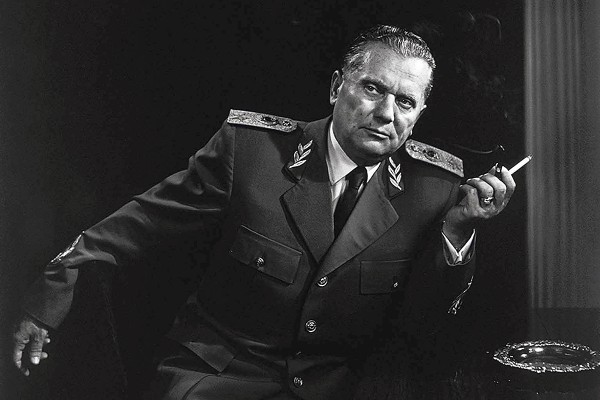The mechanisms of repression and censorship developed in the Yugoslav political system during Tito’s rule were neither systematic nor consistent, while the intensity of party pressure on society varied in the course of the decades (R. Vučetić, 2016). The foreign and domestic political circumstances in which Yugoslavia found itself influenced the way that critics of the authorities were treated during the more than four decades of communist rule. The most severe phase of repression by the authorities against artists is connected with the early 1970s, and followed on the most liberal decade in the whole of Yugoslavia’s history. Numerous factors played a role. The collapse of the economic reforms of 1965 in the subsequent years had led to a growth in social tensions, culminating in the discontent of the student demonstrations of 1968. The increased sensitivity of young people to the imperfections of the Yugolsav system and, as it was seen, the growing abuse of granted freedoms, troubled the authorities in particular. At the same time, this was an era of fierce political reckoning as President Tito took action against disobedient elements within his own ranks – first, against intelligence chief Aleksandar Ranković (1966), then the Croatian and Serbian leadership in 1970–71. All this served to increase party pressure on society and, at the end of the 1960s and especially the beginning of the 1970s, to make independent and critical activity within Yugoslavia particularly challenging. It is also important to note that these steps were taken at a time when Yugoslavia's position in terms of foreign policy was stable and political and economic links had developed between Yugoslavia and the Eastern and Western blocs, as well as with the Non-aligned states, opening a certain window for President Tito to resolve problems within the country. The negative tendencies continued throughout the whole of the 1970s. The situation was to change to a certain extent only after Tito's death in 1980, while far-reaching changes had to wait until the end of the 1980s and beginning of the 1990s.
The ‘Office of the President of the Republic’ collection contains a unique and rich body of documents relating to a large number of topics from the time of Josip Broz Tito’s rule (1945–1980) making it indispensible for research, above all, of internal political issues in socialist Yugoslavia. The ‘Office of the President of the Republic’ collection comprises documents, reports and stenographic notes from state and party meetings, as well as information, analyses and other documents produced by the institutions working in the service of the president.
The documents produced in the course of the work of the president of the Republic of Yugoslavia were part of a special archival unit that was processed from the end of the 1960s. After the death of Josip Broz Tito (1980), the position of the president was discontinued and the material created in the period between 1953 and 1980 was incorporated into the Archive of Josip Broz Tito which was established at the time. This material was neither suitably ordered nor accessible to researchers until 2009 when the Archives of Yugoslavia took over the Archive of J.B. Tito, including the documents belonging to the Office of the President of the Republic, from the Museum of Yugoslavia where they had been kept until then. Today, both collections are fully and freely accessible to researchers.
As an example of investigation into the cultural opposition, we have selected documents gathered under the heading, ‘Information on the performance “When Pumpkins Blossomed” at the Yugoslav Drama Theatre by Dragoslav Mihailović’ (KPR II-4-a/73), which encompass party material in connection with the banned play of ‘When Pumpkins Blossomed’ from 1969 (more on this under featured item).

